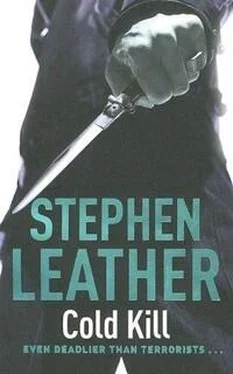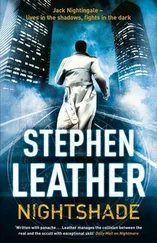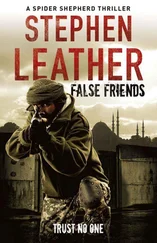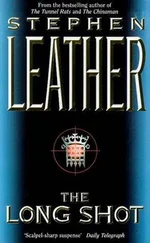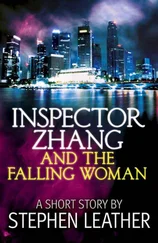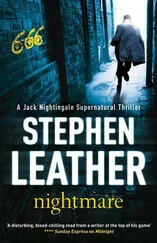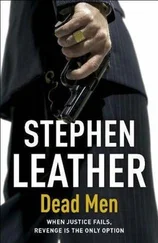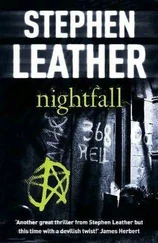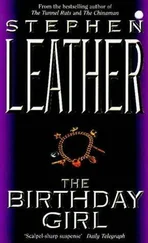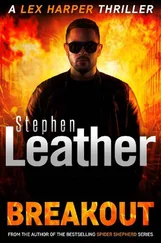Stephen Leather - Cold Kill
Здесь есть возможность читать онлайн «Stephen Leather - Cold Kill» весь текст электронной книги совершенно бесплатно (целиком полную версию без сокращений). В некоторых случаях можно слушать аудио, скачать через торрент в формате fb2 и присутствует краткое содержание. Жанр: Триллер, на английском языке. Описание произведения, (предисловие) а так же отзывы посетителей доступны на портале библиотеки ЛибКат.
- Название:Cold Kill
- Автор:
- Жанр:
- Год:неизвестен
- ISBN:нет данных
- Рейтинг книги:4 / 5. Голосов: 1
-
Избранное:Добавить в избранное
- Отзывы:
-
Ваша оценка:
- 80
- 1
- 2
- 3
- 4
- 5
Cold Kill: краткое содержание, описание и аннотация
Предлагаем к чтению аннотацию, описание, краткое содержание или предисловие (зависит от того, что написал сам автор книги «Cold Kill»). Если вы не нашли необходимую информацию о книге — напишите в комментариях, мы постараемся отыскать её.
Cold Kill — читать онлайн бесплатно полную книгу (весь текст) целиком
Ниже представлен текст книги, разбитый по страницам. Система сохранения места последней прочитанной страницы, позволяет с удобством читать онлайн бесплатно книгу «Cold Kill», без необходимости каждый раз заново искать на чём Вы остановились. Поставьте закладку, и сможете в любой момент перейти на страницу, на которой закончили чтение.
Интервал:
Закладка:
The Thai girl at the Qantas check-in desk greeted him with a cold smile and a mechanical ‘ Sawasdee ka.’ The Saudi knew that most Thais didn’t like Arabs. It was nothing to do with the problems in the Middle East: it was racism, pure and simple. He enjoyed the confusion on her face as he handed her his British passport. She looked at the photograph, then at his face as if unable to believe that an Arab might be British. Then she examined his Australian visa. The Saudi smiled coldly. The Thais guarded their citizenship jealously and barely a handful of foreigners were granted a Thai passport each year, and only then after meeting strict criteria. The British had no such reservations. It was no longer a person’s race or background that stipulated British citizenship: it was whether or not they had the correct paperwork. And the paperwork was for sale to anyone with enough money or the right connections. Russian asset-strippers, American conmen, Nigerian drug-dealers, Indian fraudsters, Muslim terrorists, the British had issued passports to them all. And they were making no move to stem the tide. It was politically incorrect even to mention that the proportion of foreigners holding British passports was growing, that the country’s cultural identity was becoming so watered down that no one had any idea now of what it meant to be British.
It wasn’t just the British who were committing cultural suicide, the Saudi mused. Most of Europe was following suit. Virtually all of his friends held European passports, and made good use of them. The Saudi had been British since he was a teenager: his father had invested heavily in high-profile companies and institutions, and made significant donations to the major political parties. There had been other payments, too, in cash and in secret, to politicians and bureaucrats who had smoothed the way for the family’s citizenship application. Now the Saudi was British, and always would be. Once granted, British citizenship was almost impossible to lose. And with it came the freedom to travel the world.
The girl handed him his passport and boarding pass, and gave him a wai, her fingertips pressed together beneath her chin. ‘The flight will be boarding soon, sir,’ she said.
The Saudi headed for the gate. The metal detector bleeped as he walked through the security check. A girl in a dark blue suit motioned for him to stand on a small wooden plinth and he waited patiently as she ran a portable detector over his body. It buzzed as it went over his watch and he showed her his twenty-five-thousand-dollar diamond-encrusted watch, enjoying the jealousy that flashed across her face. The detector buzzed again as it passed over his wallet and he handed it to her. There was a thick wad of hundred-dollar bills inside, probably more than a year’s salary for the girl, and all the credit cards were gold or platinum.
The Saudi stepped off the plinth, collected his briefcase and headed for the gate.
He walked by several television screens, all showing CNN. Groups of travellers were huddled in front of them. The Saudi frowned. A headline ran across the bottom of the nearest: HUNDREDS DEAD IN PHUKET . His mind whirled. Had the bomb gone off early? Had his people detonated the device by accident? Or had the police stormed the building, guns blazing? He frowned. There was a map of South East Asia on the screen now.
Another headline appeared: TSUNAMI KILLS THOUSANDS IN INDONESIA.
The frown deepened. A tsunami? His English was fluent but ‘tsunami’ looked like a Japanese word. Then he remembered. A tidal wave caused by an earthquake.
The map disappeared, replaced by two earnest newsreaders: a middle-aged man with blow-dried hair, and a woman ten years younger showing just enough cleavage to suggest that it wasn’t solely her ability with the autocue that had got her the on-camera job. The man explained that a massive earthquake in the Andaman Sea had caused a tidal wave, which had hit beaches in Indonesia, Thailand and Malaysia. Thousands had been killed.
The Saudi went to a bank of payphones. He slotted in some coins and called the mobile number of his people in Phuket. A female Thai voice spoke for ten seconds, then repeated the information in accented English. The number was unobtainable.
The Saudi went to another television set and joined the throng of travellers watching the news. Another headline flashed up next to the CNN logo: DEATH TOLL ESTIMATED AT FIFTEEN THOUSAND.
Fifteen thousand? thought the Saudi. He had hoped to kill a few hundred at most, but nature had beaten him to the punch and killed thousands instead, including, probably, his four operatives. But nature would take credit for the death toll, not al-Qaeda. An act of terrorism that might have ignited a religious war in the south of Thailand had been replaced by a natural disaster that would unite the world in relief efforts. And, as always, the Americans would lead the charitable donations. It would do them no good in the long run, the Saudi knew. The Americans would always be hated for their arrogance, for the way they treated the world as if it were theirs by birthright, for the way they rode roughshod over cultures and civilisations millennia older than their own. But in the short term the news beamed round the world would show earnest American politicians pledging to do all they could to rebuild the region, American helicopters dropping supplies, American bankers offering financial aid.
The Saudi smiled wryly. He could do nothing to change what had happened. The Thais had a saying for it: Jai yen. Cool heart. Go with the flow. Nature had conspired to destroy his plans in Thailand. So be it. He couldn’t fight nature.
As he reached the gate, passengers were already lining up to board the Qantas 747. The Saudi had never understood the urge to be first on to a plane. Even the first-class cabin wasn’t an environment in which he was tempted to linger, but it was always those in Economy who seemed most eager to cram themselves into an uncomfortable seat in an aluminium tube where they would eat processed food on cue, watch poor-quality movies on a screen guaranteed to cause eyestrain, and breathe recycled air. The Saudi sat patiently until the last few passengers were boarding, then handed over his boarding card and passport to be checked and headed for the plane.
The seat next to his was empty. Most first-class passengers were seasoned travellers who would keep conversation to a minimum, but there were always exceptions and the Saudi was in no mood to make small-talk. He had a lot of thinking to do.
He was so deep in thought that he was barely aware of the huge plane powering along the runway, climbing into the sky and banking left over Bangkok as it headed south.
‘Champagne, sir?’
The Saudi jerked as if he’d been stung. A blonde stewardess, wearing too much make-up, was holding a tray of filled champagne glasses. The Saudi thanked her and took one. He sipped. It wasn’t a good vintage but, then, tastebuds lost most of their sensitivity at thirty thousand feet. The Saudi wasn’t averse to alcohol. He had tried most drugs, out of curiosity rather than need. He ate pork: his favourite dish was the famous full English breakfast, complete with bacon, sausages and black pudding, ideally served at his regular table in the Grill Room at London’s Savoy Hotel. So far as the Saudi was concerned, Islam wasn’t about food choices, or whether one enjoyed a glass of champagne or a good malt whisky. Islam was about politics. And power.
The Saudi knew the Koran by heart, and could quote passages at length, word-perfect. But he didn’t believe much of what the Holy Book contained. He didn’t believe that martyrs to the cause were rewarded with seventy-two black-eyed virgins and that places in heaven were guaranteed for them and their relatives. There was much in the Koran that the Saudi didn’t believe, in the same way that many Catholic priests did not believe in the literal truth of the Bible. The Koran was a tool for controlling people, as powerful as a gun or a bomb. The Saudi appreciated its power and he was as adept at using it as he was in the construction of bombs. So he sipped his champagne and felt not a twinge of guilt.
Читать дальшеИнтервал:
Закладка:
Похожие книги на «Cold Kill»
Представляем Вашему вниманию похожие книги на «Cold Kill» списком для выбора. Мы отобрали схожую по названию и смыслу литературу в надежде предоставить читателям больше вариантов отыскать новые, интересные, ещё непрочитанные произведения.
Обсуждение, отзывы о книге «Cold Kill» и просто собственные мнения читателей. Оставьте ваши комментарии, напишите, что Вы думаете о произведении, его смысле или главных героях. Укажите что конкретно понравилось, а что нет, и почему Вы так считаете.
